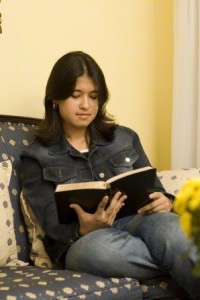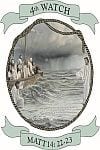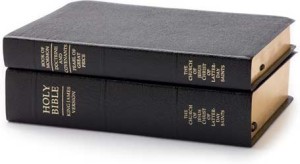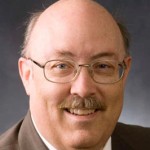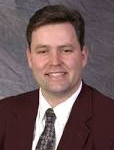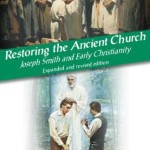I was recently drawn into a fascinating discussion of truth and history. I have always loved history. In part, my love of history led to my study of political science and a career in law. A recent online post I read started with an invitation to learn the history of The Church of Jesus Christ of Latter-day Saints. I have read posts of others questioning, “How can a person can be active in The Church of Jesus Christ of Latter-day Saints in view of the history of the Church and the different beliefs held and practiced by the Church?”
I have spent the majority of my life investigating, researching, sorting through, and evaluating “facts.” John Adams stated, “Facts are stubborn things; and whatever may be our wishes, our inclinations, or the dictates of our passion, they cannot alter the state of facts and evidence.” I too have found facts, including historical facts, to be stubborn things. It has been my professional experience that witnesses to events sometimes misperceive, mis-recall, and even misstate facts for a variety of reasons. I have seen witnesses testify under oath inconsistently with one another, both claiming to have seen and recalled an event. Likewise, I have had witnesses, who after the passage of time, recall events memorialized in photographs and contemporary documents in a manner inconsistent with that unquestioned photographic and documentary proof.
The philosopher Voltaire assailed history as being “a pack of lies we play upon the dead.” While Voltaire’s view may be extreme, it is clear that an element of subjectivity is inherent in investigating and retelling history. Subjectivity may also play a role in our study of history, despite the reader/investigator’s best intentions and desires. The student of history may unconsciously allow the present to influence his or her knowledge or interpretation of past historical events. (An interesting article on the problem of bias in the study of history can be found online.)
Knowing the inherent limitations in the recording (and studying) of the history, including the true and unbiased context in which past events may have occurred, religious scholarship and discipleship often require consideration of and sifting through potentially contravening and contradictory evidence. To find eternal truths, especially historical religious truths, the seeker or disciple must turn to the Author of truth, knowing that He will give knowledge to all men liberally in response to the proper exercise of faith and study.
The seeker of eternal truths soon understands that His ways are not necessarily our ways, nor our thoughts, His thoughts. At times, we may struggle to understand how a loving God could send floods to cover the earth, plagues to afflict the disobedient, direct His chosen leaders to take multiple wives, or order the death of evil men. At times, we may struggle to understand how the use of spittle could restore the sight of one who was blind (Mark 8:22–25), how Jordan’s waters could heal the leper (2 Kings 5), or how the mere touch of the hem of His garment could heal the infirm (Matthew 9:20–22). We may even struggle to understand the importance of His teaching to Thomas, “blessed are they that have not seen, and yet have believed” (John 20:29). Faith is often born as we ”learn to walk to the edge of the light, and then a few steps into the darkness; then the light will appear and show the way before you” (source). He encourages us to “dispute not” in part because we often do not receive a witness of the truth until after the trial of our faith (Ether 12:6). Having spent a lifetime in search of religious truth based upon facts and the Spirit, I think it is fair to say that the Church and faithful third parties have provided well researched and scholarly responses to each of the matters currently in discussion and debate. History is not to be feared. History can and does build faith.
The Church in recent months has addressed a number of doctrinal and historical issues raised in recent years concerning variety of topics largely by those openly opposed to the Church. The Church’s responses are found in its “Gospel Topics” website. While detractors may choose to assert that such statements are evidence of a “cover up,” others may rightfully assert that such official statements are merely the result of a need to address clear and unequivocal falsehoods which have been raised and disseminated against the Church on a broad scale due to the influence of the Internet.
Some may ask, “Why would God allow such claims to be so prevalent in our day? Why would God allow His work to be opposed by such vocal and persistent voices of dissent and doubt?” I think there are reasons for this. As darkness approaches and as dissenting voices ring out, we must turn to Him for understanding and truth. Ultimately a testimony of the restored gospel of Jesus Christ comes down to one’s testimony and conversion born of the Holy Ghost. The Savior’s ministry was notable for open and fierce opposition to Him personally as well as His teachings. The Lord’s people and His servants have always been the object of false persecution and claims. His ways were not the ways of the people of His day. His teachings were not well accepted by the masses. Some even questioned his history. Many asked, “Is not this the carpenter, the son of Mary, the brother of James, and Joses, and of Juda, and Simon? and are not his sisters here with us? And they were offended at him” (Mark 6:3).
Such opposing forces led directly to His crucifixion and the persecution of His early church, its teachings, its leaders, and its members. The world soon fell into a great apostasy and spiritual darkness. The world rejected the Light of the world. I testify that the ensuing darkness was not dispelled until the spring of 1820 when He answered a young boy’s prayer and the work of the restoration of His truths, priesthood authority, and Church commenced anew. That boy, Joseph Smith, became God’s prophet. Even after the restoration of His gospel in these modern days, similar forces continue to oppose God’s truths, Church, and people.
Faith is a personal matter between God and each and every one of His children. I choose to believe. I have felt His spirit bear witness to my soul of the truthfulness of my beliefs. I know His Son lives and is my Redeemer. His truths set me free each day. I pray for those who stumble in darkness, those whose faith and light may be weak, and those whose faith once bright has faltered. I pray for those who choose not to believe. They are my brothers and sisters.
I bear my witness that The Church of Jesus Christ of Latter-day Saints is God’s kingdom here on earth and is led by a living prophet. Christ stands at the head of His Church today. His invitation to all to come unto Him has not and will not change.
I close with the words of one of His modern day Apostles, which I know to be true. Elder Russell M. Nelson said, “Even more amazing than modern technology is our opportunity to access information directly from heaven, without hardware, software, or monthly service fees. It is one of the most marvelous gifts the Lord has offered to mortals. It is His generous invitation to ‘ask, and it shall be given you; seek, and ye shall find; knock, and it shall be opened unto you.'”
This timeless offer of personal revelation is extended to all of His children. It almost sounds too good to be true. But it is true!
